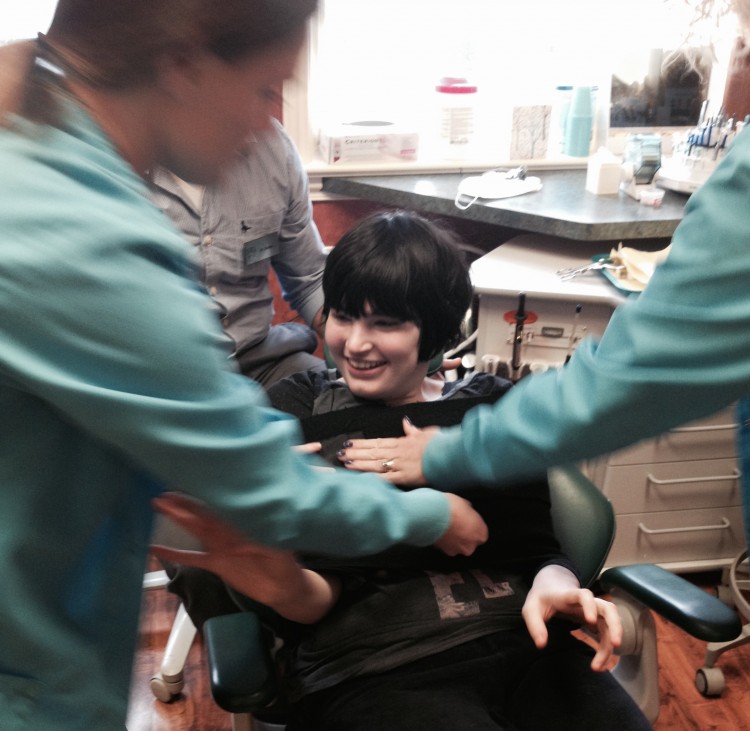
Today, my daughter Jess had a six-month dental checkup. This time, she was given a new doctor.
With my full support, the team wrapped her in Velcro bands. This has a calming effect, and prevents her from flailing her arms, which is like a knee-jerk reaction, but with arms.
The dentist then placed a mouth prop in, to prevent her from biting down. As he was inspecting each tooth, he started singing the “ABC’s.” Jess started to object and tried to move her head. He then began singing “The Wheels on the Bus.”
Before he could finish the first verse, I said: “Excuse me, but that song is not appropriate, Jess is a young adult.”
The dentist: “Uh, what should I sing? What music does she like?”
Me: “Well, what music do you listen to?”
Then a pause…
The dentist: “Oh.”
I was so annoyed at the moment, I couldn’t remember the whole conversation verbatim, but that was the gist.
From there, I (nicely) went off telling him that you can’t define a person solely on their outward appearance, and you should not assume what someone comprehends based on their diagnosis. Labels tend to share information with a broad stroke. To his credit, he had read about Angelman syndrome before her appointment, but most likely he read the Wikipedia version.
As I was “educating” the young doctor, I caught Jess’s eye and she proceeded to calm down. I hate talking about her in front of her, but this was one of those moments I couldn’t take it, and he struck a nerve. It’s not unusual for anyone to not be able to answer the dentist’s questions. Why do they always ask questions that require more than a “yes” or “no” when they are working in your mouth?
This was awkward. Jess was unable to speak for herself, (remember she was wrapped in Velcro and did not have access to her Talker) so I had to be her voice.
Just because someone isn’t able to talk, don’t assume they don’t understand what you are saying. No matter where someone falls in the spectrum of disabilities, no one likes being underestimated. Jess is no different. When someone underestimates my daughter, the most powerful thing I can do is pull them aside and set them straight. It’s important to take advantage of these teachable moments. Most likely, the person has no idea they did or said anything wrong.
If every parent spoke up, we’d be closer to reaching a point where archaic perceptions no longer dictate how our kids are treated.
Ideally, my daughter should be seen as the young woman she is, and not defined solely by her diagnosis.
Follow this journey on You Don’t Say AAC

